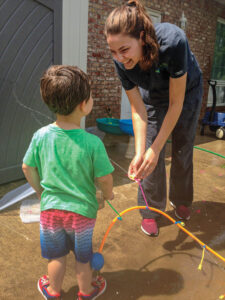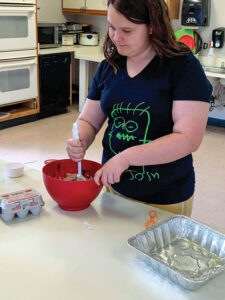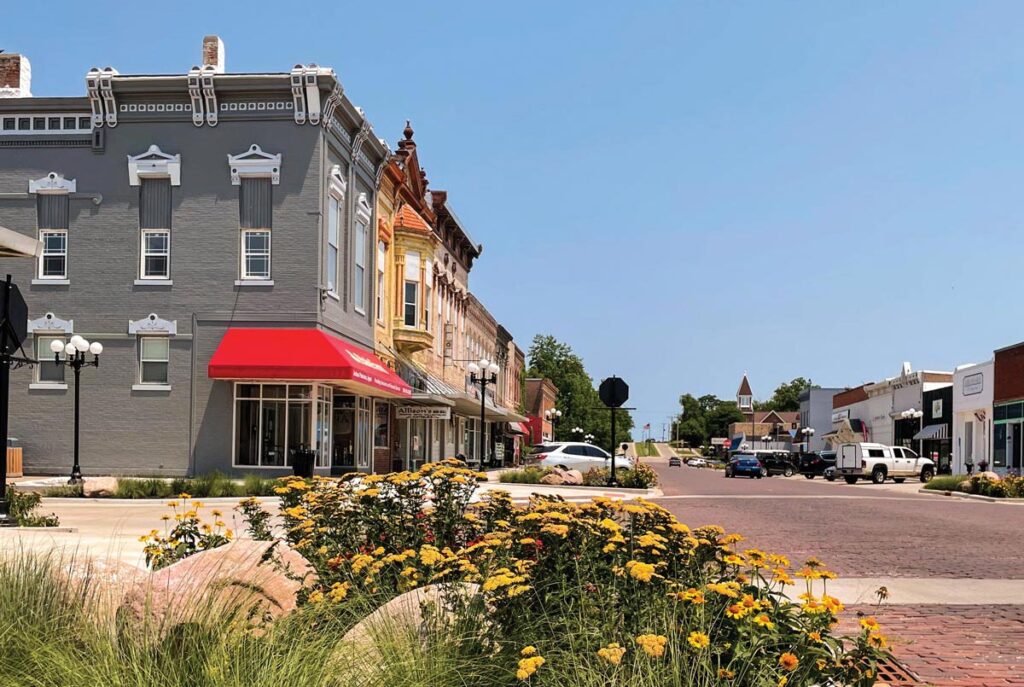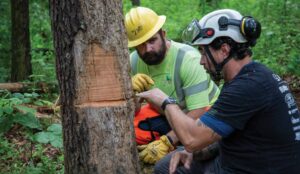
In the 1950s, two separate organizations opened in central Illinois. Both started for similar reasons and have similar goals. Created by parents who had children with intellectual and developmental disabilities and could not find a place to serve them outside of institutionalization, both Hope and SPARC aim to help provide the tools needed for a good quality of life for people of all ages
and abilities.
Hope began as Hope School in a one room schoolhouse, according to Jodi Ogilvy, chief communications officer of Hope. It is now a 40,000-square-foot facility housing a creative environment, including individualized playgrounds and sensory rooms within its classrooms. While its mission has remained the same, the organization has expanded exponentially in its 65 years.
In addition to the Hope Learning Academy and the Autism Clinic at Hope located in Springfield, there is another learning academy in Chicago and autism clinics in O’Fallon and Edwardsville, a therapy relief program, the Illinois Crisis Prevention Network and The Autism Program of Illinois. A new school is also slated to open this fall in Edwardsville.
Hope’s programs are individualized for each student and “are designed to improve basic life and vocational skills while increasing the potential for independence,” according to its website. Together, these entities provide assistance through residential, vocational and occupational services, and community-based support and consultation services, as well as screening, therapeutic recreation and rehabilitation.
Ogilvy says Hope’s curriculum is based on Applied Behavioral Analysis, as well as early intervention. “Our model is to get to kids in their communities in the least restrictive environment.” She adds that every child is different, but an inclusive environment creates adults who often become advocates for others with disabilities.
“Overall, we strive to teach as much independence as possible to our students. That looks different for each kiddo. In our independence learning and therapeutic education, we teach skills that will aid our students in the adult world. That could mean how to do laundry and prepare a meal, or communicate using a Picture Exchange System (PECS) or a communication device. In the Vocational Academy, we specifically teach our students job skills that can transfer to employment in the adult world. Depending on the job, they might learn how to use a cash register, prepare food, janitorial skills, etc. In the Hope Therapeutic Day Academy, our students need extra support in the social and emotional area of learning, so we teach them social and emotional skills in a highly therapized classroom,” says Ogilvy.

The Judith A. Jordan Summer Camp, named after the daughter whose parents originally founded Hope School, offers various hands-on learning opportunities like science labs, art, dance, movement and water play. Ogilvy says Hope hosts larger events as well, including a summer party, performances, a color/bubble run and a Fourth of July parade.
Hope employs a staff of 600-700 and impacts more than 5,400 people with intellectual and developmental disabilities. Admission is on a referral basis, through schools, the Illinois Department of Children and Family Services and the Illinois Department of Human Services (IDHS). Ogilvy says once children reach the age of 22, the team transitions them to a place close in proximity to their families, based on fit.
SPARC, as a CILA provider, is just one of those places. According to the IDHS website, the formal definition of a CILA is “a living arrangement for adults ages 18 and older in a group home, family home or apartment where eight or fewer unrelated adults with developmental disabilities live under supervision of the community developmental services agency. Residents receive complete and individualized residential habilitation, personal support services and support under the direction of a community support team within the local agency.”
Denise Schainker, director of communications and fund development for SPARC, says the organization began as “The Little Red Schoolhouse” in 1951, much like Hope, as a solution for seven families with children with disabilities. She says the next hurdle they faced was the absence of potential places of employment. The organization since has expanded to include vocational support and now serves more than 300 adults.

Schainker says the 20 group homes are “just like your home and my home … [They are] an option other than an institution where they are a part of a community with people like them.” The homes are staffed 24 hours a day, seven days a week with a staff of 165 full-time employees, most of whom are direct support professionals. Residents must be referred by the Central Illinois Service Access (CISA), which manages CILA providers.
She says they have residents “from one side of the spectrum to the other and everything in between,” ranging from completely dependent to relatively independent. There are 18 homes in neighborhoods in Springfield and two in Chatham; male and female homes are separate.
Normally, residents work every day, either in the community or at the work center–they have contracts with vendors, like bagging masks for DHS, and manufacturing dog biscuits (making the dough, baking, bagging and delivering them). Residents earn wages, cook and clean. Schainker says they enjoy the social environment. “They cook dinner, eat with roommates, shower and get ready for the next day.” There is also a senior center where residents can choose “retirement” (but not to just sit in a chair and watch television, she says).
It’s more than merely work and household chores, though. Entertainment options include movies, crafts and music therapy, and occasionally special events like baseball games and concerts. “It’s important to be around people,” she says. “They like having things to look forward to and love schedules.”
There is also an IC, or “Intermittent CILA,” where six residents live in an apartment on their own. Staff members check in and do a needs assessment, which could mean helping a resident balance his or her checkbook or pay bills.

“We are an organization that has been embraced by the community for a long time. [We have] good neighbors, wonderful sponsors and leadership second to none,” says Schainker, who credits these “partners” with the success of the program. “It comes from the community … in order to give them this quality of life.”
In addition to these hands-on programs, other agencies advocate for these children and adults behind the scenes, like the Illinois Council on Developmental Disabilities (ICDD), whose mission is to “help lead change in Illinois so all people with developmental disabilities exercise their right to equal opportunity and freedom.”
That mission is currently carried out through a 5-year state plan that aims to systematically facilitate both individual and family advocacy as well as systems change. These goals are broken down into specific projects addressing financial wellness, better health care and expanded life choices, as well as creating local resources for all aspects of community life. Currently, 15 of those projects are making an impact statewide, while the other 15 have a more targeted impact. For more details, visit illinois.gov/sites/icdd.
Together, schools, programs and agencies like these are sustaining and creating new avenues for Illinoisans with intellectual and developmental disabilities. Ultimately, with hard work and dedication, those efforts will continue to foster and grow the quality of life for people of all abilities.
RESOURCES
To find out more about providers like SPARC and additional services in your area, visit the IDHS website at dhs.state.il.us and click on “office locator.” Make sure to select “developmental disability services” and county of residence from the dropdown menus.
Hope also has programs in different regions of the state. To find one near you, visit hope.us or contact Rebecca Murphy, director of outreach and case coordination, at 217-585-5120 or rmurphy@hope.us.










